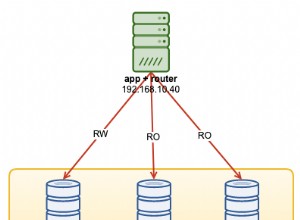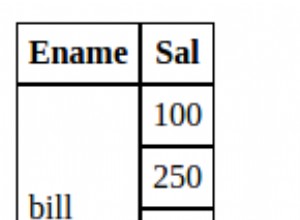मेरा अनुमान है कि ThreadPoolExecutor वह नहीं है जो डीबी कनेक्शन बना रहा है, लेकिन थ्रेडेड जॉब कनेक्शन रखने वाले हैं। मुझे इससे पहले ही निपटना पड़ा है।
मैंने इस रैपर का निर्माण समाप्त कर दिया, यह सुनिश्चित करने के लिए कि जब भी ThreadPoolExecutor में नौकरियां की जाती हैं तो थ्रेड मैन्युअल रूप से बंद हो जाते हैं। यह सुनिश्चित करने में उपयोगी होना चाहिए कि कनेक्शन लीक न हों, अब तक मैंने इस कोड का उपयोग करते समय कोई लीक नहीं देखा है।
from functools import wraps
from concurrent.futures import ThreadPoolExecutor
from django.db import connection
class DjangoConnectionThreadPoolExecutor(ThreadPoolExecutor):
"""
When a function is passed into the ThreadPoolExecutor via either submit() or map(),
this will wrap the function, and make sure that close_django_db_connection() is called
inside the thread when it's finished so Django doesn't leak DB connections.
Since map() calls submit(), only submit() needs to be overwritten.
"""
def close_django_db_connection(self):
connection.close()
def generate_thread_closing_wrapper(self, fn):
@wraps(fn)
def new_func(*args, **kwargs):
try:
return fn(*args, **kwargs)
finally:
self.close_django_db_connection()
return new_func
def submit(*args, **kwargs):
"""
I took the args filtering/unpacking logic from
https://github.com/python/cpython/blob/3.7/Lib/concurrent/futures/thread.py
so I can properly get the function object the same way it was done there.
"""
if len(args) >= 2:
self, fn, *args = args
fn = self.generate_thread_closing_wrapper(fn=fn)
elif not args:
raise TypeError("descriptor 'submit' of 'ThreadPoolExecutor' object "
"needs an argument")
elif 'fn' in kwargs:
fn = self.generate_thread_closing_wrapper(fn=kwargs.pop('fn'))
self, *args = args
return super(self.__class__, self).submit(fn, *args, **kwargs)
तब आप बस इसका उपयोग कर सकते हैं:
with DjangoConnectionThreadPoolExecutor(max_workers=15) as executor:
results = list(executor.map(func, args_list))
...और आश्वस्त रहें कि कनेक्शन बंद हो जाएंगे।




